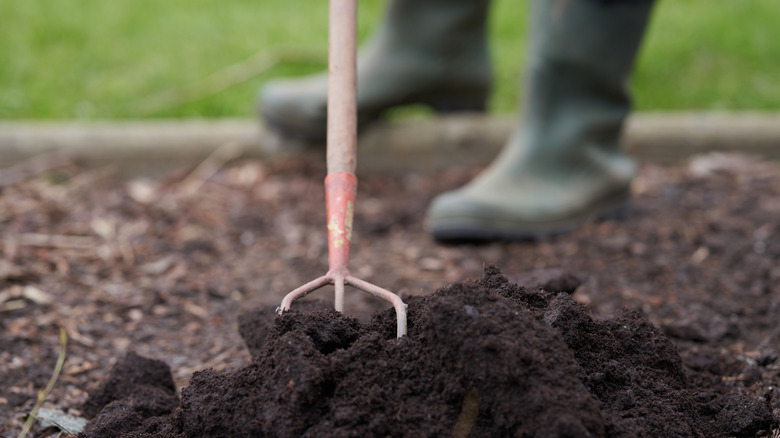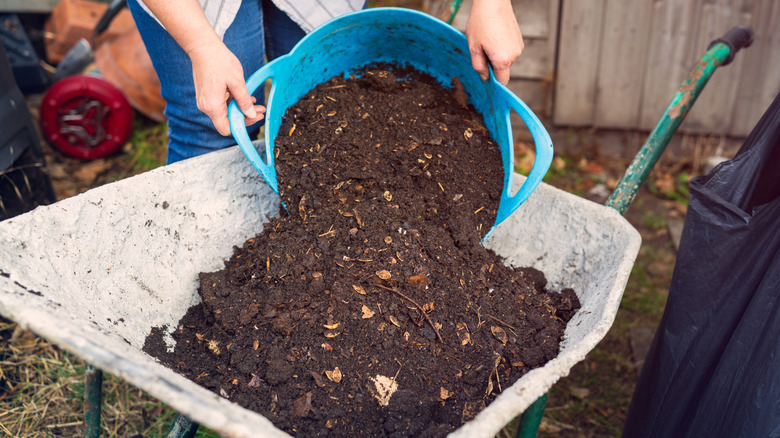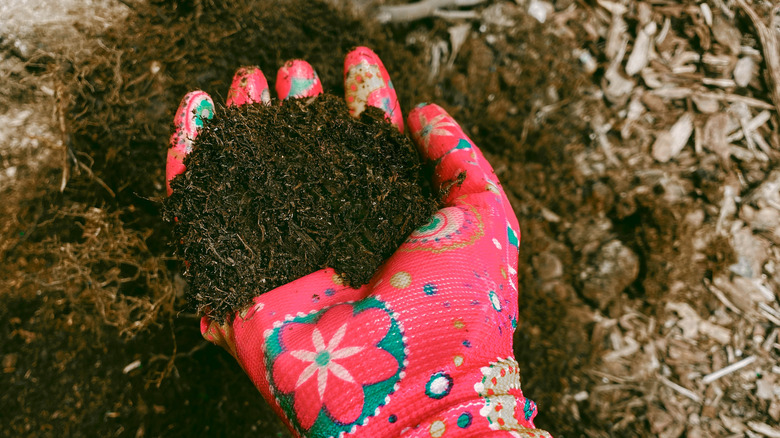The Exact Amount Of Compost Your Soil Needs (And Why It Matters)
So you've got your compost ready for the next gardening season. Maybe you even learned how to make your own DIY compost. But how much compost does your garden soil really need? Composting is one of those concepts that gardeners hear about all the time, but some people can get stuck when it comes to applying it. The simple answer is that you should add no more than 30% compost to your soil, but it is also essential to be aware that you may not need that much. With the correct compost levels, your soil will be fortified with organic matter that promotes density and nutritional balance in the soil and adds resistance against disease and pests.
What it actually comes down to is your current soil conditions. Some gardeners assume that they need to add the same amount of compost to the soil every year, but that's not the case. Like anything else with gardening, you need to pay attention to what your soil is telling you. Now, you're not going to be able to walk outside, dig up a little dirt, and know exactly what your soil needs. But with the right test, your soil can tell you everything you need to know. If nutrients are lacking, it is generally recommended to add up to 25% compost to raised beds or containers and up to 30% compost to garden beds.
Why compost is important for your soil
First and foremost, you need to determine if your soil needs additional compost. All it takes is a simple soil test, which will tell you if you need compost or if the soil already has sufficient nutrients. Compost is about recycling organic materials to improve the health of your soil (which is also why it is so important to know what you should and should not add to your compost if you make it yourself). It provides key soil nutrients, particularly phosphorus and potassium. If you add too much, these nutrients can run off beyond your garden and impact local freshwater ecosystems such as rivers and lakes. It can also have a negative impact on plant growth and groundwater.
That being said, when done right, composting provides a vast range of benefits. In addition to adding nutrients, quality composting improves soil structure, balances pH, suppresses pests and disease, and even discourages certain weeds. It is also a sustainable way to recycle food waste and save money on fertilizer and pesticides, while reducing greenhouse gas emissions.
How to apply and measure compost for healthy soil
If you have determined that your garden will benefit from the added nutrients in compost, it's time to mix it into your soil. The exact amount you need to add depends on the goal. When adding compost to your garden beds, add 1 or 2 inches of compost and till it into the top 6 to 8 inches of soil. You can also use compost to fertilize your lawn. For a new lawn, use the same amount you would apply to a garden. However, if your lawn is already established, you don't need to dig up your yard. Simply sprinkle up to ½ inch of compost over the entire lawn before aerating it.
Raised beds are a bit different because they do not directly draw nutrients and moisture from native soil. They are more closely related to containers and pots than to in-ground gardens. However, the same concept applies regarding the ratio of compost to soil, and it is important to use a soil mix in your raised beds — compost alone is not enough. You can mix equal parts compost, top soil, and sand, or equal parts compost, top soil, sand, and lava rock.


